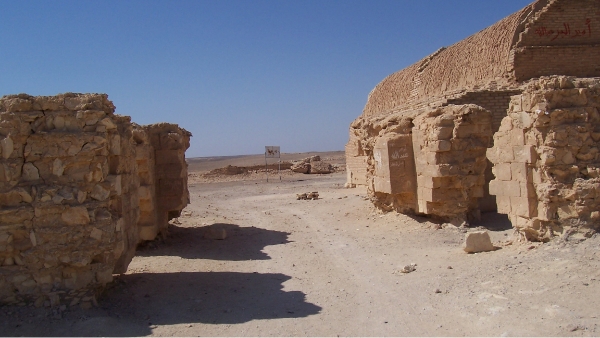Al-Mshatta Palace "Winter Palace"
Al-Mshatta Palace is one of the desert castles built by the Umayyads. Situated nearly 32 km southeast of Amman, this palace was built by the Umayyad Caliph al-Walid bin Yazid in 744 AD, and is surrounded by a 144-meter-long square wall comprising of 25 circular towers.
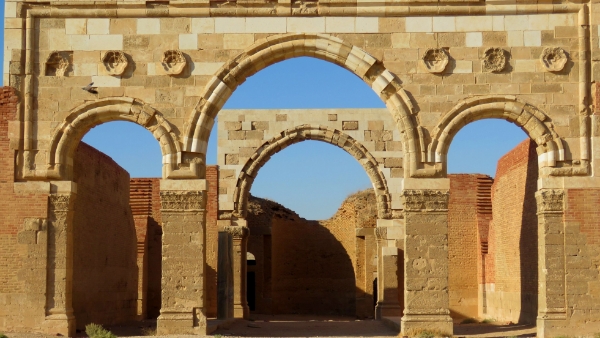
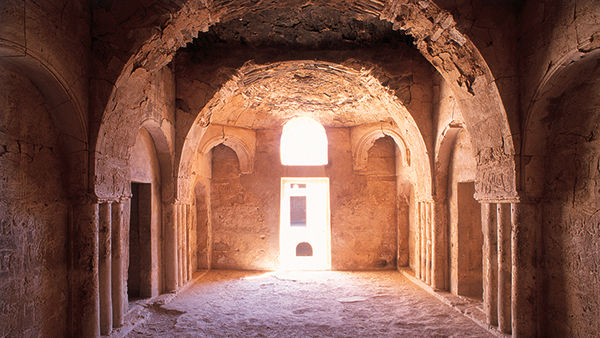
Qasr al-Harrana/Al-Kharanah
Named Al-Harrana Castle as it is positioned in the Al-Harrana Valley; the square fortress was built during the reign of Al-Walid ibn Abd al-Malik. The castle has been restored several times as a result of the constant invading empires. Located on the international road on the way to Azraq, visitors are encouraged to get medieval and explore inside the fortress walls.
Quseir Amra
Built during the reign of the Umayyad caliph Yazid bin Abd al-Malik, who is considered to be the sixth caliph of the Umayyad successors, Quseir Amra is believed to have been a location to aid in hunting. With the preservation of castle carvings and fresco paintings the Quseir Amra is sure to be a castle experience unlike the others.
This site is one of Jordan’s UNESCO world heritage sites, for more information click here
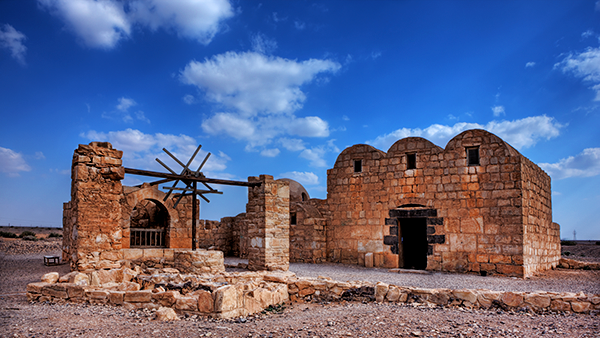
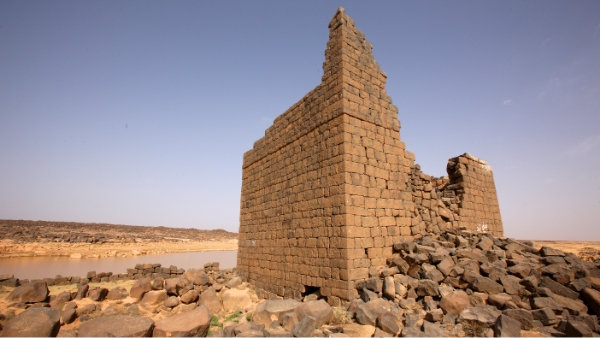
Qasr Burqu'
Built by the Romans to maintain control of a freshwater source the palace was constructed with steam irrigation channels that reaches all rooms and facilities. Qasr Burqu' is a desert castle located in the governorate of Mafraq and is waiting to be discovered.
Qasr Al-Hallabat
One of the most important, distinguished archaeological sites in the Middle East, and originally a small Roman fortress built to protect the Nova Trajana route. It was occupied in 106 AD and was part of Limas Arabicus, the then Arabian Peninsula. In the fourth century, the castle was enlarged and protected by four towers, possibly during the reign of Diocletian.
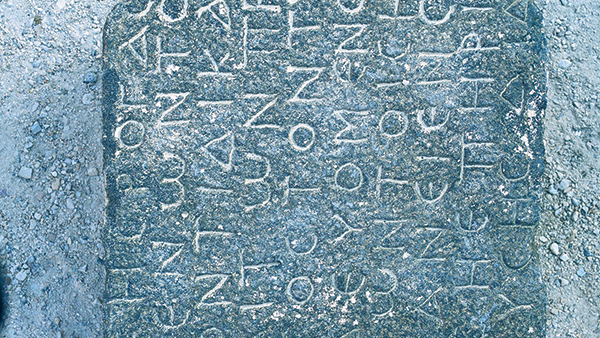
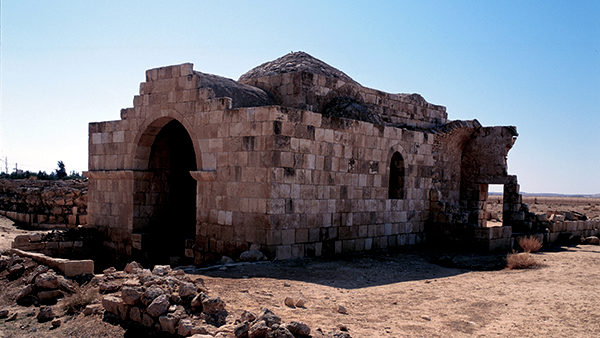
Qasr Hammam al-Sar’h
Qasr Hammam al-Sarah, also known as the Eastern Hallabat Palace, is located in the city of Zarqa, north of the Jordanian capital Amman. An Umayyad bathhouse, the castle was constructed by the Caliph Hisham ibn Abd al-Malik in the early eighth century AD.
Qasr Tuba
Qasr Tuba is one Umayyad palace that has maintained a large part of its structure despite its exposure to erosion and destruction, as it is located on a commercial route that links Balqa to the Arabian Peninsula. Historians have dated the castle back to the reign of Walid ibn Yazid.
